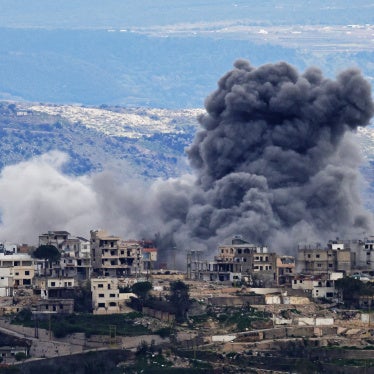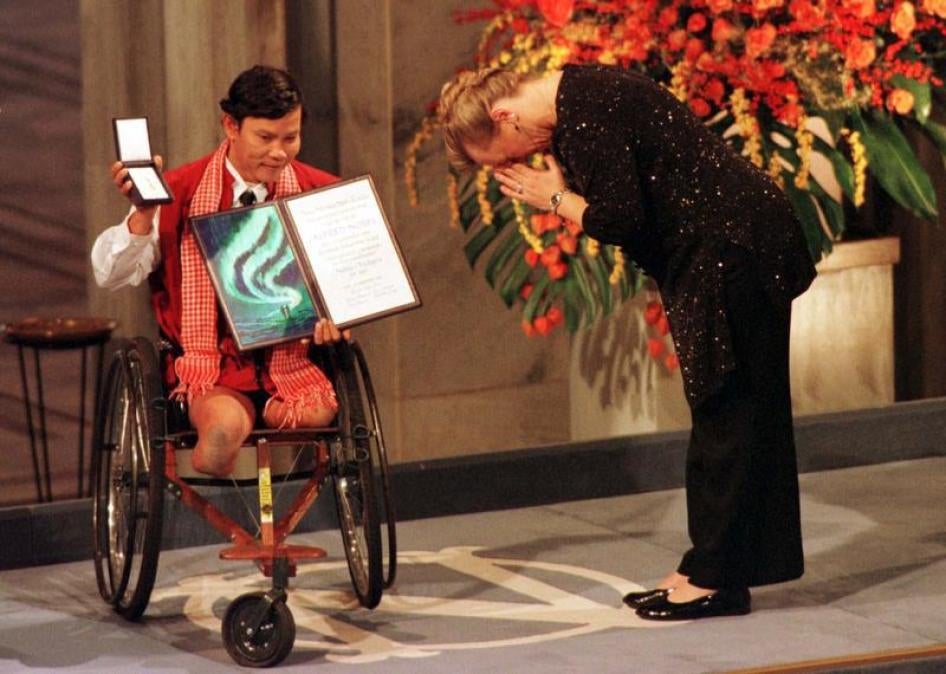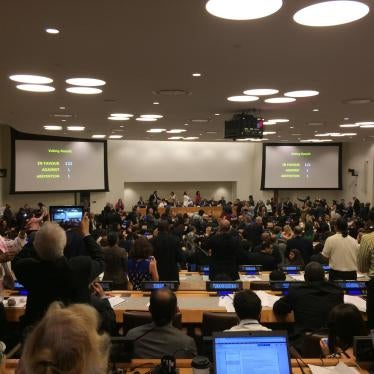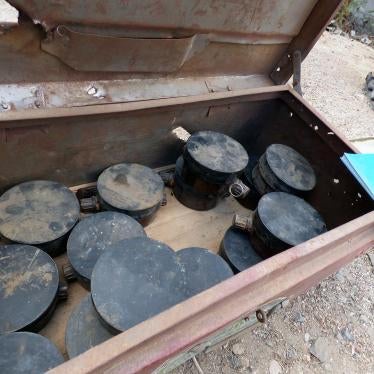On this day 20 years ago, I was in Oslo with the International Campaign to Ban Landmines (ICBL), watching as countries formally adopted the hard-fought treaty prohibiting antipersonnel landmines. These weapons injure or kill their victims long after wars have past.
The creation of new international law is a rare and memorable occasion. We cheered the diplomats present for producing such a strong treaty in record time, describing it as “a gift to the world.” The ground-breaking Mine Ban Treaty not only prohibits a weapon that was once widely used, but also requires clearance of mined areas and assistance to mine victims.
The ICBL, which Human Rights Watch co-founded and now chairs, returned to Norway less than three months later to accept the 1997 Nobel Peace Prize. The Norwegian Nobel Committee described the ICBL’s efforts as “a convincing example of an effective policy for peace” that it hoped would provide “a model for similar processes in the future.”
Since then, the Mine Ban Treaty has continued to secure broad support as its 162 states parties implement its provisions with vigor and determination, collectively destroying more than 51 million antipersonnel mines from their arsenals and clearing vast huge swaths of mine-affected land. Some face implementation challenges, but overall, compliance with the Mine Ban Treaty remains impressive.
Moreover, most of the three dozen countries that have yet to join the treaty are abiding by its provisions. This stigmatizes any use of antipersonnel mines. Again, challenges remain, but overall antipersonnel mines have been shunned and their use now relegated to a handful of states such as Burma and Syria.
The Mine Ban Treaty and the 2008 Convention on Cluster Munitions are the humanitarian disarmament standard bearers for efforts to prevent and reduce harm from indiscriminate weapons. “Humanitarian disarmament” contrasts with traditional disarmament, arms control and non-proliferation initiatives, which have been driven by countries seeking to advance narrower national security interests. This humanitarian focus seeks to strengthen international humanitarian law and protect civilians from the suffering caused by armed conflict.
These treaties have also inspired the development of new law, most recently the Treaty on the Prohibition of Nuclear Weapons, adopted on July 7, which will open for signature at the United Nations in New York on September 20. This treaty prohibits nuclear weapons and addresses the consequences of nuclear weapon use and testing by requiring assistance to victims and remediation of environmental contamination.
Countries that have not signed the nuclear weapons ban treaty will, with time, face an uphill struggle in opposing the treaty. As with landmines and cluster munitions, one can expect that they will eventually be faced with a weapon so stigmatized that they will have no excuse but to give it up.
|
Dispatches
Preventing Suffering through ‘Humanitarian Disarmament’
Countries to Begin Signing Nuclear Weapons Treaty This Week
Your tax deductible gift can help stop human rights violations and save lives around the world.
Region / Country
Most Viewed
-
March 5, 2026
Israeli Military Calls for Evacuating Southern Lebanon

-
November 25, 2019
A Dirty Investment

-
January 16, 2026
Iran: Growing Evidence of Countrywide Massacres

-

-
September 28, 2025
China: Draft ‘Ethnic Unity’ Law Tightens Ideological Control






